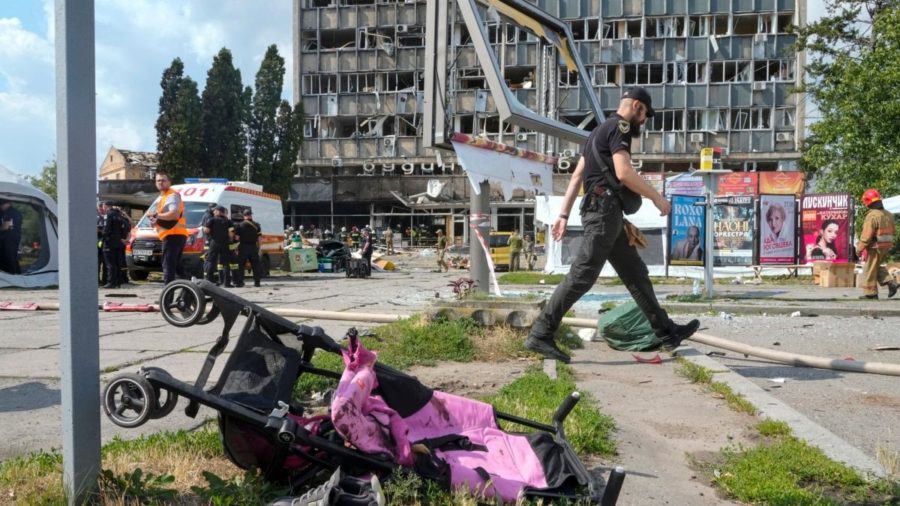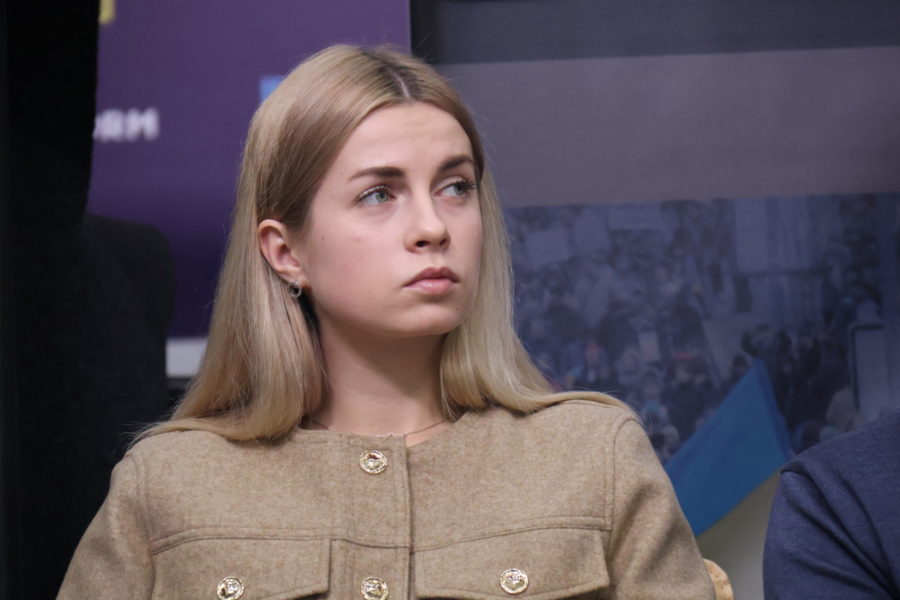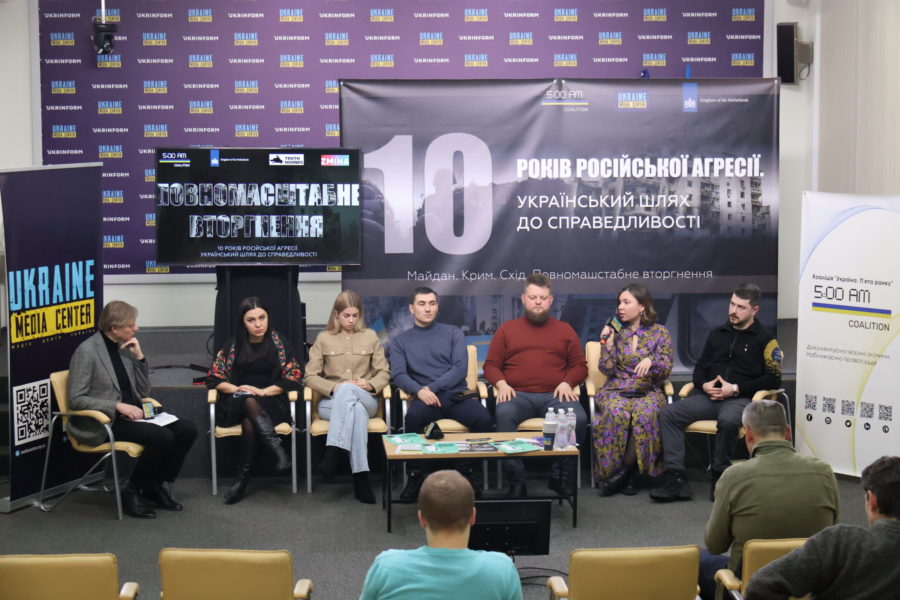Two years of a full-scale invasion: human rights activists and victims discussed how to punish those responsible for war crimes
Will all those who commit atrocities on the territory of Ukraine be brought to justice, when will this happen, and what is the scale of the crimes committed by the Russian military? This was discussed during the panel “Full-scale invasion” within the media marathon “10 years of Russian Aggression in Ukraine. The Path to Justice”, organized by the Ukraine 5 AM Coalition.
 Illustrative image. Russia launched a missile attack on Vinnytsia, July 14, 2022. Photo: AR
Illustrative image. Russia launched a missile attack on Vinnytsia, July 14, 2022. Photo: ARAccording to official data from Ukrainian law enforcement, in two years since the start of the full-scale invasion, more than 122,000 criminal cases have been opened under the article on violation of the laws and customs of war. One of the key factors for future justice is the quality documentation and preservation of evidence of crimes committed by Russians on the territory of Ukraine.
Tetiana Pechonchyk, Chair of the Board of Human Rights Centre ZMINA, noted that the primary work in investigating war crimes and holding perpetrators accountable lies with the national justice system.
“The processes of justice will last for years, even decades. We must build our work taking this factor into account and be prepared to continue doing so even in 10 years. Moreover, we have to do it efficiently so that the documented data can be used in courts,” noted Tetiana Pechonchyk.
Human rights activists emphasize that the figures known as of February 2024 do not reflect the real picture of the crimes committed by the Russian Federation in Ukraine. This is mostly due to the fact that the aggressor state deliberately conceals information, especially regarding civilian hostages.
Yurii Armash, the head of the medical unit of the mechanized tank battalion of the 59th Brigade, who survived Russian captivity, reported that in places of detention of prisoners in temporarily occupied territories, both civilians and military personnel are subjected to torture. Widespread sexual violence by the occupiers affects not only women but also men, and in some cases, children.
“Few people talk about it. And few want to hear about it at all,” says a former prisoner of war, adding: “Russia prioritizes the return of its military personnel, so it is not interested in returning or exchanging civilian prisoners. When we were in captivity, the Russians told us that civilians would only be exchanged at the end of the war. When “Russia achieves its goals”. Unfortunately, civilians are not a priority.”
“Exchanges happen, people returning. Some are lucky to find out something about their loved ones, whether they are military or civilian because they are held together. The exact number of civilian hostages is currently unknown. According to the Office of the Commissioner for Human Rights of the Verkhovna Rada, it is about 20,000 people. However, if you take the published registry of the Ministry of Internal Affairs, there is a different figure,” said Kateryna Ogievska, a representative of the NGO Civilians in Captivity. “Even now, people are being detained in temporarily occupied territories. Without reason, arbitrarily, for no reason at all — you can walk down the street “in a wrong way”. Or “look at the Russian military” in the wrong way.”
 Kateryna Ogievska
Kateryna OgievskaThe Russian Federation has deported up to 2.8 million people from the temporarily occupied territories of Ukraine, hundreds of thousands of whom are children. According to official data, the number of deported children reaches 19,500. To date, only 388 of them have been returned.
“When we communicate this issue, this large-scale crime, which includes elements of genocide, war crimes, and crimes against humanity, we see that Russia cynically violates all international conventions and laws. This crime is one of the largest since World War II,” says historian and researcher of the project Where Are Our People from the public organization PR Army, Vladyslav Havrylov. “Russia does not plan to return the deported Ukrainian citizens; it hides information about where it deports our people. Already, 60 “facilities” for detaining Ukrainian citizens have been identified.”
Investigation of international crimes committed on the territory of Ukraine is primarily the task of Ukraine itself. However, international institutions assist in this matter: they take on a certain part where Ukraine, from a jurisdictional standpoint, cannot conduct investigations on its own, explained Stanislav Petrenko, Head of the Division of the Department for Combating Crimes Committed in the Context of Armed Conflict of the Office of the Prosecutor General of Ukraine.
“The International Criminal Court, in a record time frame for international justice, issued an arrest warrant for Russian President Putin and Lvova-Belova. This is a considerable success. Perhaps it does not satisfy the demand that Putin be brought in chains to The Hague tomorrow – unfortunately, international law does not work that way. However, the stamp of an international criminal on Putin is there, and this stigma is not easily erased,” noted the representative of the Office of the Prosecutor General of Ukraine.
Human rights activists are convinced that it is important for the perpetrators to face fair punishment. The lack of an appropriate response to the crimes committed by Russia against Ukrainians at the beginning of the aggression in 2014 has led to their repetition on a much larger scale with the start of full-scale invasion in newly occupied territories.

“We now understand how important it is for the perpetrators to be actually punished and held accountable. This is the only way to show others that the same fate awaits them even in 5, 10, or 50 years,” added Senior Legal Advisor of Truth Hounds, Zera Kozlieva.
The panelists noted that in order to achieve justice in the future, we need collaborative efforts between Ukrainian law enforcement agencies and civil society, including journalists and non-governmental organizations engaged in collecting information, conducting investigations, and monitoring missions.
The full recording of the discussion is available here: in English and Ukrainian.
If you have found a spelling error, please, notify us by selecting that text and pressing Ctrl+Enter.















